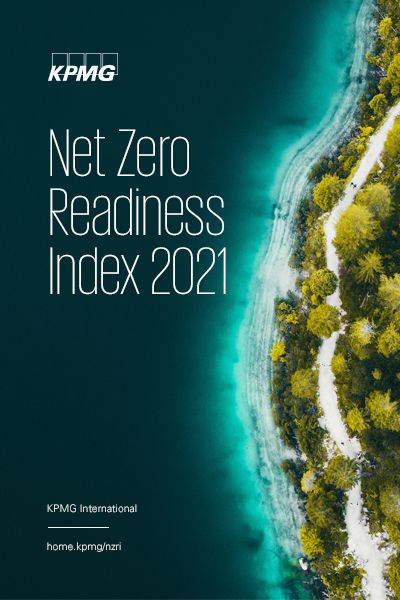Faced with risk of political and policy momentum being derailed by social opposition to costs of climate change mitigation, France’s government tries new ways to engage citizens in decision-making.
Policy framework
Coming in at sixth overall, France punches above its ranking in a number of categories in the NZRI. The country is ranked third for policies and enabling environment, contributing to it being placed fifth on national preparedness overall. In working towards meeting its legally binding 2050 Net Zero target, it partly benefits from implementing EU environmental policies, as well as domestic regulations including climate-related disclosures for financial institutions.
France was one of the first European countries to develop a national clean hydrogen strategy in 2018. In 2019, it established an expert independent body, Haut Conseil pour le Climat (high council on climate), to assess governmental policy and its impacts1 and in September 2020, it allocated 30 billion euros (EUR) (USD35 billion) of its EUR100 billion post-COVID-19 recovery plan to green energy work, including hydrogen fuel development.2 It already generates 91 percent of electricity from low-carbon sources, mainly nuclear but increasingly from renewable sources including offshore wind.

Social cost
But while there is general public and corporate support for reducing emissions, policies including increased vehicle fuel taxes have been strongly resisted by the 'gilets jaunes' (yellow vests) protest movement.3 Many living in suburban and rural France rely on cars for transport and employment, and protestors saw their targeting as an attack by urban elites. “If you want another carbon tax, it will need a lot of scrutiny to make sure it does not repeat the errors of the past and addresses everyone,” says Clément le Gouvello, Senior Manager, Climate Team, KPMG in France.
To that end, President Emmanuel Macron set up the Convention Citoyenne pour le Climat (citizens’ convention on climate), a group of 150 randomly chosen adults with expert support who met between October 2019 and June 2020, to draw up plans to cut greenhouse gas emissions by at least 40 percent by 2030.4 However, while Macron originally said he would pass their proposals unfiltered to parliament, only around 40 percent of these were included in a climate bill.5 Legislators made further changes as it went through parliament, which passed in July 2021 and includes a ban on most domestic flights for which a rail alternative of less than 2.5 hours is available.6

Land use
France has one of the largest areas of agricultural land among European countries and controls the second-largest area of ocean worldwide due to its overseas territories in the Atlantic, Indian and Pacific oceans. As such it has a huge responsibility in protecting its carbon sinks and supporting efforts to move to less emissive agricultural methods, such as through regenerative agriculture and agroecology, to meet its Paris Agreement objectives. At the One Planet Summit in January 2021, the government introduced a plan to protect 30 percent of both its maritime and land territories by 2030.7
The government is also incentivizing the private sector to part-finance projects in the national voluntary carbon offset program, Label bas carbone (low-carbon label). Although still in progress, this market could gain momentum and encourage more forestry, agriculture, peatland and other low-carbon projects to be partly sponsored by the private sector.
Le Gouvello says that since few countries in Europe have created markets for carbon offsets, the EU could consider taking a larger role in scaling up and coordinating the existing national voluntary carbon markets, through defining a common set of rules to issue carbon credits, or establishing a controlling body for example, he adds.
1 Haut Conseil pour le Climat, accessed July 2021. https://www.hautconseilclimat.fr/en/
2 France in huge coronavirus recovery plan focusing on green energy’, BBC, 3 September 2020. https://www.bbc.co.uk/news/business-54009642
3 Lucy Williamson, ‘The gilets jaunes’, BBC, 14 December 2018. https://www.bbc.co.uk/news/resources/idt-sh/yellow_vests
4 Convention Citoyenne pour le Climat, accessed July 2021. https://www.conventioncitoyennepourleclimat.fr/en/
5 Sonia Phalnikar, ‘France's citizen climate assembly: A failed experiment?’, DW, 16 February 2021. https://p.dw.com/p/3pBZi
6 Constantin Gouvy, 'French lawmakers adopt compromise climate bill amid protests', AP News, 20 July 2021. https://apnews.com/article/europe-business-government-and-politics-climate-environment-and-nature-c699e7ab727b920f5b8ca51a34ef33da
7 One Planet Summit - 'Commitments to act in favor of biodiversity', French Ministry for Europe and Foreign Affairs, 12 January 2021. https://www.diplomatie.gouv.fr/en/french-foreign-policy/climate-and-environment/the-one-planet-movement/article/one-planet-summit-commitments-to-act-in-favor-of-biodiversity-12-jan-2021





